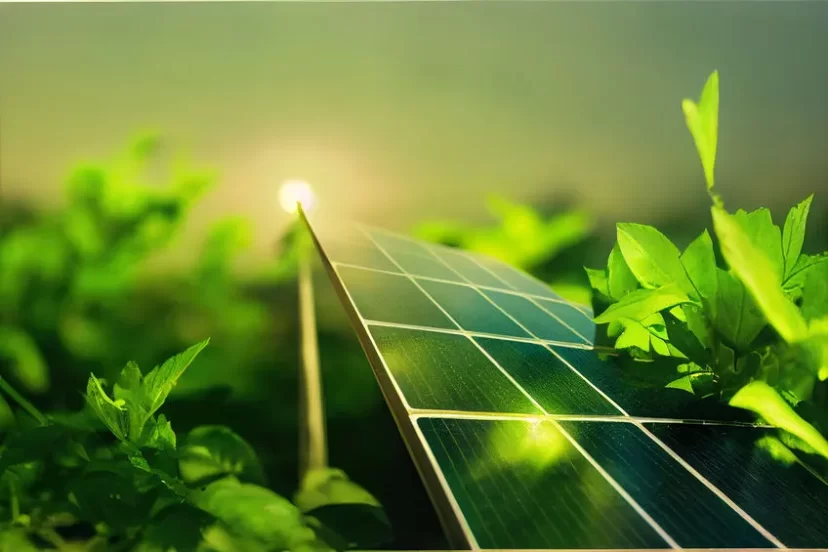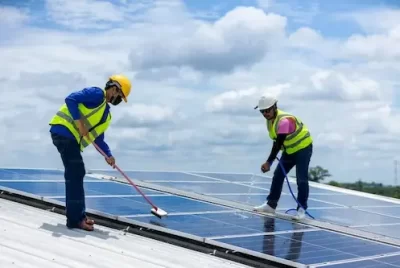Advantages of Solar Power: Benefits for Individuals and the Environment
We may earn a commission for purchases made using our links. See our disclosure to learn more.
Welcome to the world of solar power! In this article, I will delve into the numerous advantages of solar power for both individuals and the environment. Solar power has gained significant popularity in recent years due to its remarkable benefits. By harnessing the power of the sun, we can not only save money and achieve energy independence but also contribute to a sustainable and cleaner planet. Let’s explore the advantages of solar power in detail.
What is Solar Power?
Before we delve into the benefits, let’s first understand what solar power is. Solar power is the conversion of sunlight into electricity using photovoltaic (PV) cells or solar panels. These panels contain multiple solar cells that capture sunlight and convert it into usable electricity. This clean and renewable energy source offers numerous advantages over traditional forms of energy generation.
Advantages of Solar Power for Individuals
Cost Savings
One of the primary advantages of solar power for individuals is the potential for significant cost savings. By generating your electricity, you can drastically reduce or even eliminate your monthly utility bills. Solar power allows you to tap into a free and abundant energy source, reducing your reliance on expensive grid-supplied electricity.
Energy Independence
Solar power provides individuals with energy independence. Instead of relying solely on the grid, which is susceptible to price fluctuations and outages, solar panels allow you to generate your electricity. This energy independence grants you peace of mind, knowing that you have a reliable source of power, even during emergencies or power outages.
Long-Term Investment
Investing in solar power is a wise long-term investment. While the initial installation costs may seem daunting, solar panels typically have a lifespan of 25 to 30 years. During this time, you can enjoy significant savings on your electricity bills, ultimately offsetting the initial investment. Moreover, solar power systems often increase the value of your property, making it an attractive asset if you decide to sell your home.
Tax Incentives
To encourage the adoption of solar power, many governments and local authorities offer attractive tax incentives. These incentives can include tax credits, rebates, or grants that help offset the installation costs. By taking advantage of these programs, individuals can further reduce upfront expenses and accelerate the return on their solar investment.
Advantages of Solar Power for the Environment
Renewable Energy Source
One of the most significant advantages of solar power is its renewable nature. The sun is an inexhaustible energy source, providing an abundant supply of power. Unlike fossil fuels that deplete over time, solar energy is renewable, making it a sustainable choice for generations to come. By transitioning to solar power, we can reduce our reliance on finite resources and move towards a greener future.
Reduced Greenhouse Gas Emissions
Solar power plays a crucial role in reducing greenhouse gas emissions. Traditional methods of electricity generation, such as burning fossil fuels, release harmful greenhouse gases like carbon dioxide (CO2) into the atmosphere. These gases contribute to global warming and climate change. Solar power, on the other hand, produces electricity without emitting any greenhouse gases. By harnessing solar energy, we can significantly reduce our carbon footprint and combat climate change.
Improved Air Quality
In addition to reducing greenhouse gas emissions, solar power also helps improve air quality. Traditional power generation methods often involve the combustion of fossil fuels, which releases pollutants into the air. These pollutants, such as sulfur dioxide (SO2), nitrogen oxides (NOx), and particulate matter, contribute to air pollution and have detrimental effects on human health. By adopting solar power, we can mitigate air pollution and create cleaner and healthier environments for ourselves and future generations.
Conservation of Natural Resources
Solar power promotes the conservation of natural resources. The extraction and consumption of fossil fuels, such as coal and oil, have a significant impact on the environment. It leads to deforestation, habitat destruction, and the release of pollutants during the extraction process. By utilizing solar energy, we can reduce our dependence on these non-renewable resources and preserve natural habitats. Solar power offers a sustainable alternative that allows us to meet our energy needs without depleting the Earth’s precious resources.
Choosing Solar Power for Your Home
Assessing Your Energy Needs
Before embracing solar power, it’s essential to assess your energy needs. Consider factors such as your average electricity consumption, the available rooftop or ground space for solar panels, and any local regulations or restrictions. Understanding your energy requirements will help determine the size and capacity of the solar power system that best suits your needs.
Understanding Installation Process
Installing solar panels requires careful planning and understanding of the process. It’s recommended to consult with professional solar installers who can assess your property, provide expert advice, and ensure a seamless installation. They will handle tasks such as securing permits, designing the system, and installing the panels, maximizing the efficiency and performance of your solar power system.
Evaluating Cost and Return on Investment
While the cost of installing solar panels has decreased significantly over the years, it’s still essential to evaluate the financial aspects. Consider the upfront costs, potential savings on your electricity bills, and the payback period of your investment. Many solar providers offer financing options and leasing programs that make solar power more accessible and affordable.
Finding Reliable Solar Providers
Choosing a reliable and reputable solar provider is crucial for a successful solar power journey. Research different providers, read customer reviews, and compare quotes to find the best fit for your needs. Look for companies with extensive experience, quality products, and excellent customer service. A reliable solar provider will guide you through the process, ensure the best system performance, and provide ongoing support.
Conclusion
Solar power offers a myriad of advantages for both individuals and the environment. By harnessing the power of the sun, we can save money, achieve energy independence, and contribute to a cleaner and more sustainable planet. The benefits of solar power extend beyond financial savings, encompassing reduced greenhouse gas emissions, improved air quality, and the conservation of natural resources. If you’re considering solar power for your home, assess your energy needs, understand the installation process, evaluate the costs and returns, and choose a reliable solar provider. Embrace the advantages of solar power and be a part of the renewable energy revolution.
FAQs About Solar Power
1. Can I still use solar power during cloudy days or in regions with less sunlight?
Yes, solar panels can still generate electricity during cloudy days or in regions with less sunlight. While direct sunlight produces the most efficient results, solar panels can still generate power from diffused sunlight. However, the energy output may be slightly lower compared to sunny days.
2. Are there any maintenance requirements for solar panels?
Solar panels generally require minimal maintenance. Regular cleaning to remove dirt, debris, or snow build-up is recommended to ensure optimal performance. Additionally, it’s advisable to schedule periodic inspections by professionals to check for any potential issues or to ensure the panels are functioning efficiently.
3. What happens if my solar power system produces more electricity than I consume?
If your solar power system produces more electricity than you consume, the excess energy can be fed back into the grid. Depending on your location and the policies in place, you may be eligible for net metering or feed-in tariffs. This means you can receive credits or monetary compensation for the excess energy you contribute to the grid.
4. Can I still use solar power if I live in an apartment or don’t have suitable rooftop space?
Yes, even if you live in an apartment or lack suitable rooftop space, you can still benefit from solar power. Community solar projects allow individuals to subscribe to a shared solar installation, often located in a centralized location. This way, you can access the benefits of solar power without the need for rooftop panels.
5. How long does it take to recover the initial investment in solar power?
The payback period for a solar power system varies depending on factors such as the cost of installation, energy consumption, available incentives, and electricity rates. On average, most homeowners recover their initial investment within 5 to 10 years through reduced electricity bills and potential incentives. Afterward, they continue to enjoy significant savings throughout the lifespan of the solar panels.
By embracing solar power, individuals can enjoy financial savings, energy independence, and contribute to a greener planet. Investing in solar energy is not only a smart choice for individuals but also a vital step towards a sustainable future for generations to come.




